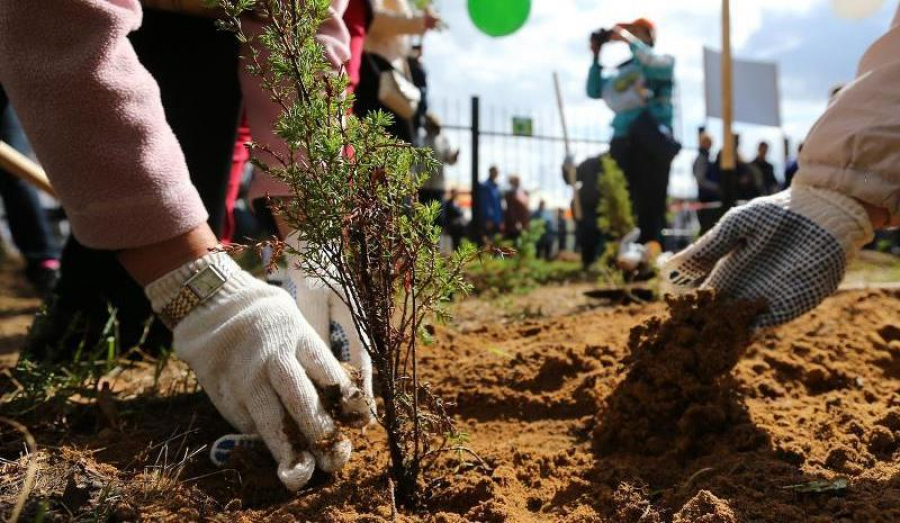
Over three million birch and pine seedlings were planted in the forests of the North Kazakhstan region this year. The seedlings were grown in the nursery for almost two years. Large-scale work on the production of natural resources is under way in the region. Environmentalists believe that this is vital. After all, trees are called ‘the lungs of the planet’. Not only do they absorb carbon dioxide and emit oxygen, but they also influence climate change. The Natural Resources Department reported that the area of forests in the region has increased by 10,000 hectares in recent years.
“On the instructions of the Head of State for a period of five years, we have considerably increased the area on which we carry out forest planting work. If this year our planting amounts to 850 hectares, next year it will already be 1,700 hectares. We are planning to plant 20,000 hectares with 100 million birch and pine trees in this area over a five-year period,” said Vassily Lobanchuk, Head, Regional Department of Natural Resources and Environmental Management.
“The forest forms the climate at ground level. First of all, the wind load, which dries up the soil, is eliminated. Thanks to it moisture is retained, accumulated. Even on a local scale, fields are better planted around the perimeter, as the huge, state-owned forest belt near Nur-Sultan. They are climate-regulating. This is probably the most important function, moisture preservation, moisture accumulation, reduction of wind load just above the ground. These properties of the forest, I believe, are key in our climate, steppe, forest-steppe zones,” said Timur Zveryachenko, Associate Professor, North Kazakhstan State University.
Translation by Assem Zhanmukhanova and Saule Mukhamejanova









